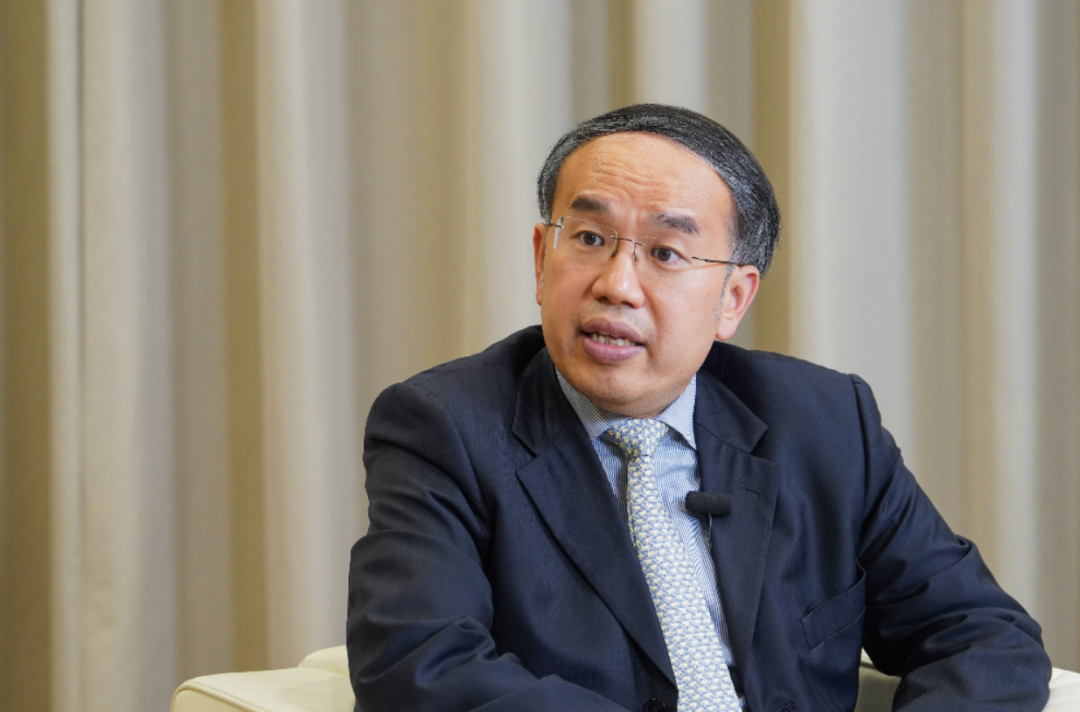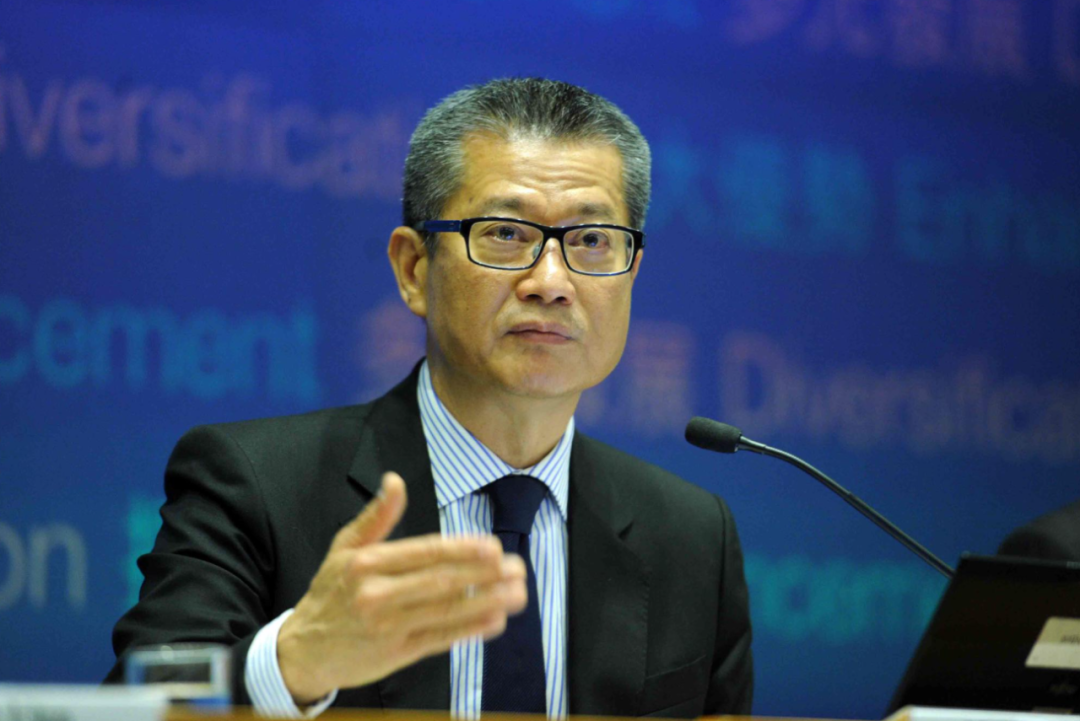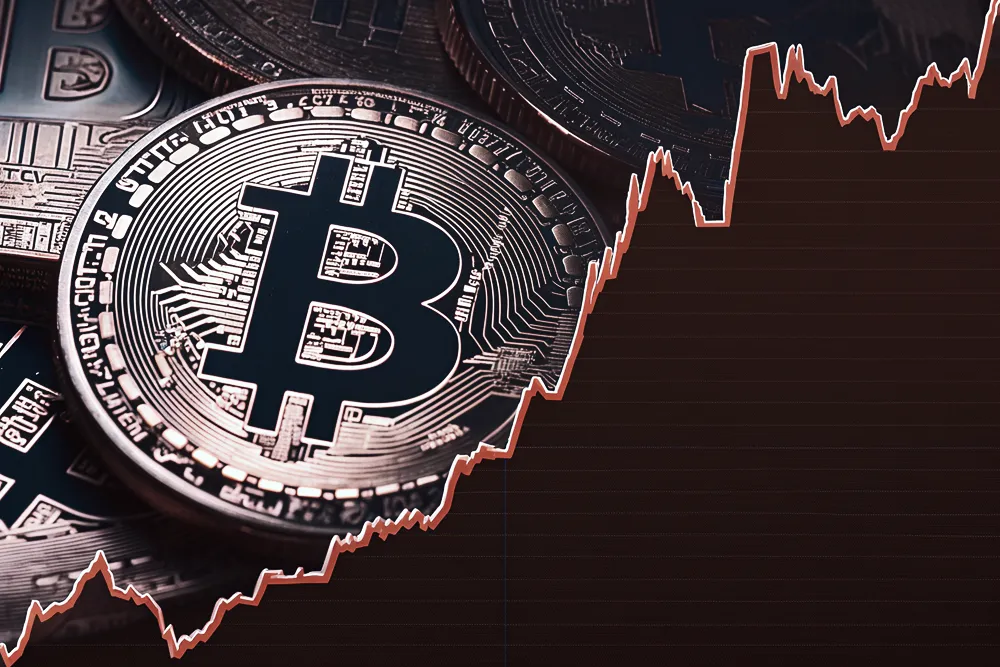Author: Liang Yu
Editor: Zhao Yidan
A 1.6 billion HKD scam, a cross-border law enforcement operation, and a regulatory system taking shape—Hong Kong's digital asset market is undergoing a difficult journey from the collapse of trust to the reconstruction of institutions.
In the courtroom of the Eastern Magistrates' Court in Hong Kong, the atmosphere is tense. Eight defendants in the JPEX case, including internet celebrity Lin Zuo and Chen Yi, appear in turn. Lin Zuo grits his teeth and shows signs of anxiety while listening to the charges. This is the largest cryptocurrency fraud case in Hong Kong's history, leading to the prosecution of 16 individuals, with the amount involved reaching 1.6 billion HKD and over 2,700 victims reporting losses.
Police Chief Superintendent Wong Chan Yu of the Commercial Crime Bureau revealed that the JPEX case is extremely complex. After a long investigation of massive data and transaction records, key evidence was identified. The police have issued red notices through Interpol for three fugitive core members and are conducting a global manhunt.
However, the outbreak of the JPEX case is not accidental; it exposes the cracks that Hong Kong must face in the process of institutionalizing digital assets. On the ruins of collapsed trust, regulators are rebuilding the scaffolding of order.
1. Collapse of Trust: From Celebrity Endorsements to Withdrawal Traps
The collapse of trust often happens quietly—only when the withdrawal button fails do investors realize that the so-called prosperity is merely a carefully designed illusion. For a time, JPEX's advertisements were everywhere in Hong Kong, from shopping malls to MTR stations, from buses to ice cream trucks, creating a false impression of platform reliability.
This beautifully packaged trading platform has numerous suspicious points. According to a statement from the Hong Kong Securities and Futures Commission (SFC) in September 2023, JPEX claims to be "from Japan," but the Japanese government clarified that it has never approved the operation of this platform. Even more shocking, the platform claimed to have partnered with Visa to launch a co-branded debit card, but Visa subsequently publicly denied this.
The JPEX case is not an isolated incident but a comprehensive collapse of the trust mechanism in digital assets. The core of the virtual asset market is not price volatility but the foundation of trust—when celebrity endorsements and marketing rhetoric replace regulatory compliance and transparent operations, the market's collapse is only a matter of time.
After the SFC issued a warning, JPEX immediately restricted customer withdrawals and significantly raised withdrawal fees to an unacceptable level, locking a large amount of investors' funds. This operational method is reminiscent of traditional Ponzi schemes, but it is cloaked in the glamorous guise of blockchain technology.

Police investigations revealed that JPEX's operational model has obvious fraudulent characteristics. The platform attracted investors through internet celebrities and star endorsements, promising high returns, while in reality, it constructed a typical Ponzi structure—using funds from new investors to pay returns to old investors. Once the inflow of funds is insufficient, the entire system will collapse.
In this JPEX case, Hong Kong police cited relevant provisions of the revised Anti-Money Laundering and Counter-Terrorist Financing Ordinance from 2022 for the first time, demonstrating the law enforcement agency's innovative legal capabilities in responding to new types of financial crimes. Among the 16 individuals charged, six are core members of JPEX, involved in conspiracy to commit fraud, money laundering, and other charges; seven are related to over-the-counter exchanges and KOLs; and three are puppet account holders.
2. Regulatory Awakening: From Case-by-Case Response to System Reconstruction
The JPEX case is like a deep-water bomb, revealing not just a fraud case but also deep cracks in the regulatory system for digital assets. In the face of this trust crisis, Hong Kong's regulatory agencies are shifting from passive responses to actively constructing a framework, attempting to find a balance between protecting investors and promoting innovation.
The statement by the Secretary for Financial Services and the Treasury, Xu Zhengyu, reveals a shift in regulatory thinking: "The process of technological development will have ambiguities, and investors must remain vigilant at all times." Behind this statement is the regulatory body's profound understanding of the characteristics of digital assets—traditional regulatory frameworks are difficult to fully adapt to rapidly evolving financial innovations.

From the perspective of regulators, the significance of the JPEX case goes beyond combating illegal activities; it also serves as a "negative example" for institutional innovation. Hong Kong's regulatory challenges do not stem from a lack of systems but from how to keep pace with the speed of innovation—this is also the deeper context of Xu Zhengyu's emphasis on "regulation must keep up with time."
After the JPEX case, Hong Kong's regulatory agencies demonstrated unprecedented determination. Xu Zhengyu revealed that the authorities will comprehensively optimize the regulatory system from four directions: trading mechanisms, stablecoin regulation, asset custody, and digital asset trading firms. This systematic construction approach marks a new phase in Hong Kong's digital asset regulation.
In June 2025, the Financial Services and the Treasury Bureau and the SFC will launch a joint consultation to introduce a regulatory system for virtual asset trading services and custodial service providers. The proposed system will empower the SFC to license and supervise relevant service providers, building a complete digital asset ecosystem.
SFC Chief Executive Officer Ms. Liang Fengyi pointed out: "The introduction of a regulatory system for trading services and custodial service providers will help build a digital asset market that is both safe and vibrant." This statement reflects the regulatory principle of "same business, same risk, same rules" upheld by Hong Kong's regulatory agencies.
3. Institutional Innovation: Hong Kong's Path and International Perspective
In the global arena of digital asset regulation, Hong Kong is exploring a uniquely distinctive path. Unlike the United States, which prioritizes enforcement in a "post-regulation" approach, Hong Kong attempts to reshape the trust framework through a system-first, market-led model.
In the key area of stablecoins, Hong Kong has made substantial progress. Xu Zhengyu revealed in November 2025 that the Monetary Authority received stablecoin license applications from 36 institutions, coming from companies of various backgrounds, with expectations to issue licenses by early next year.
This progress is consistent with the Hong Kong Special Administrative Region government's "Hong Kong Digital Asset Development Policy Declaration 2.0" published in June 2025. The declaration outlines the vision of the Special Administrative Region government to build a trustworthy and innovation-focused digital asset ecosystem, prioritizing risk management and investor protection while striving to bring substantial benefits to the real economy and financial markets.
Globally, major financial markets have adopted different regulatory strategies for digital assets. Singapore tightened its virtual asset advertising and endorsement system in 2024, and Hong Kong has strengthened compliance requirements based on this; the European Union launched the MiCA framework to provide unified regulatory rules for digital assets; the United States continues its enforcement-driven regulatory model.
Hong Kong's choice is distinctive—it is neither a simple replication of international experiences nor a completely independent innovation, but rather a gradual reform based on fully absorbing global lessons. This approach is reflected in its "LEAP" framework, which includes optimizing laws and regulations, expanding the variety of tokenized products, promoting application scenarios and cross-sector cooperation, and developing talent and partnerships.
The JPEX case highlights the importance of cross-border regulation of digital assets. The police issued red notices through Interpol for three men believed to be key figures in the JPEX case, reflecting Hong Kong's determination for international cooperation in combating cross-border virtual asset crimes.
At the same time, Hong Kong's regulatory technology is continuously upgrading. Police Commissioner Chow Yiming stated that the Hong Kong police have established an electronic system for analyzing bank documents to track the flow of funds in bank accounts and are jointly developing a one-stop virtual asset analysis tool with local universities to address fraudsters' use of virtual assets for receiving and laundering scam funds. These technological advancements mark the modernization of Hong Kong's regulatory capabilities in virtual assets.
4. Rebuilding Trust: From Regulatory Compliance to Market Ecology
The JPEX case exposed not just the misconduct of an individual platform but the "trust vacuum" in the digital asset market—when regulation lags behind innovation and investor education lags behind market enthusiasm, trust becomes the scarcest resource. Now, Hong Kong is striving to fill this vacuum.
Xu Zhengyu emphasized that investors need to know what services or products they are buying, and when something seems "too good to be true," they should be cautious. The authorities will continue to strengthen regulatory and enforcement efforts. This approach, which emphasizes regulatory responsibility while valuing investor education, reflects the concept of multi-layered risk prevention.
After the JPEX case, the SFC significantly strengthened its investor education efforts, using various channels to raise public awareness of the risks of digital asset investments and enhance investors' discernment and risk awareness. This "regulation + education" dual-track model is an important part of rebuilding market trust.
At the same time, the digital asset industry in Hong Kong is also undergoing self-regulation. Compliant trading platforms are strengthening internal risk controls and enhancing information transparency, attempting to rebuild market confidence by distancing themselves from JPEX. Some platforms have even voluntarily formed industry associations to establish industry standards and promote healthy competition.
This industry-driven compliance effort resonates with the regulatory agencies' institutional construction, jointly building the foundation of trust in the digital asset market. When market participants realize that short-term interests are unsustainable and that long-term development must be built on a foundation of trust, the entire industry can mature.
Hong Kong's exploration of digital asset regulation is not only related to local market development but also has global significance. As an international financial center, Hong Kong's successful experiences can provide references for other markets, and its lessons learned can help newcomers avoid pitfalls.
The Financial Secretary of the Special Administrative Region Government, Chen Maobo, stated in the "Hong Kong Digital Asset Development Policy Declaration 2.0": "Digital assets are an important and highly promising part of financial technology. Through blockchain technology, they enable more efficient and lower-cost financial transactions, making financial services more inclusive." The realization of this vision relies on a solid foundation of trust.

On the ruins of collapsed trust, Hong Kong is rebuilding the framework of order for digital assets. The JPEX case serves as a mirror, reflecting the market's greed and blindness while also highlighting the lag and inadequacies of regulation. Yet, crises also give birth to opportunities—when scams are exposed, criminals are held accountable, and systems are improved, the foundation of trust is being rebuilt brick by brick.
Rebuilding trust is not just the task of regulators; it is a collective endeavor for an international financial city. From the painful lesson of 1.6 billion HKD to the four major directions of regulatory optimization, Hong Kong is undergoing a profound institutional transformation in the digital asset field. This path is full of challenges, but as Xu Zhengyu, the Secretary for Financial Services and the Treasury, said: "The market is constantly evolving, and any service or product will inevitably have potential bad actors during this process; relevant regulatory efforts must keep pace with time."
In this race between trust and innovation, Hong Kong is seeking its own rhythm. When regulation, the market, and investors work together, the future of digital assets can be both vibrant and secure.
Some sources of information:
· "JPEX Case | Xu Zhengyu: Any service or product has potential bad actors; regulation must keep pace with time"
· "First batch of 8 individuals in the JPEX case transferred to the court; Hong Kong government says it will optimize virtual asset regulation"
· "Hong Kong announces a new digital asset development policy declaration"
免责声明:本文章仅代表作者个人观点,不代表本平台的立场和观点。本文章仅供信息分享,不构成对任何人的任何投资建议。用户与作者之间的任何争议,与本平台无关。如网页中刊载的文章或图片涉及侵权,请提供相关的权利证明和身份证明发送邮件到support@aicoin.com,本平台相关工作人员将会进行核查。



